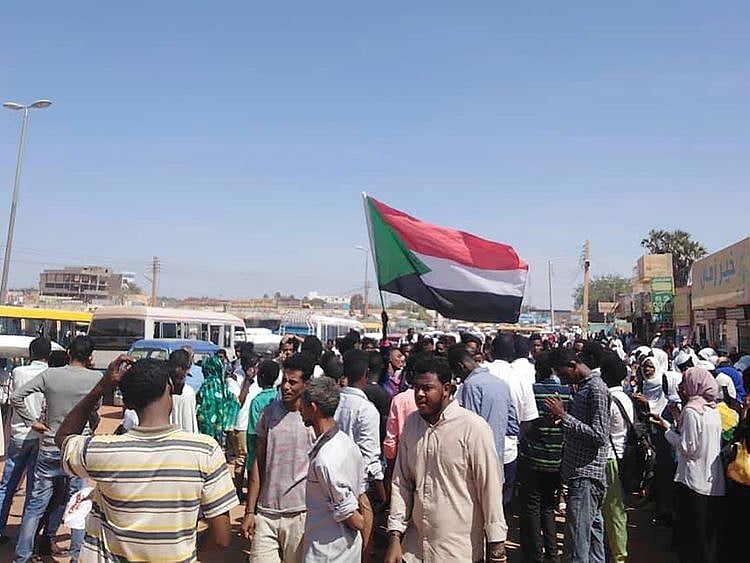Khartoum: The protest movement that led to the removal of Sudan’s president Omar Al Bashir said Sunday it was not against handing over the deposed autocrat to the International Criminal Court to be tried for genocide.
Al Bashir, who was ousted by the army in April after a nationwide agitation against his rule, has long been accused by the Hague-based ICC of genocide, war crimes and crimes against humanity for his alleged role in the devastating conflict in Sudan’s Darfur region.
“We have no objection in handing over Al Bashir to the ICC,” Ibrahim Al Sheikh, a leader of umbrella protest movement the Forces of Freedom and Change, told reporters late on Sunday.
“All the members of the Forces of Freedom and Change agree on that.”
Global rights groups, rebel factions who fought Al Bashir’s forces over the years and activists have consistently demanded that the former leader be handed over to the ICC.
After he was deposed on April 11, ICC prosecutors once again demanded Al Bashir stand trial for mass killings in Darfur.
The military generals who had initially seized power in the aftermath of the president’s fall have refused to hand him over to the ICC.
The country has since August been ruled by a joint civilian-military sovereign council, which includes leaders of the protest umbrella.
The body is tasked with overseeing the transition to full civilian rule.
The transitional authorities would need to ratify the ICC’s Rome Statute to allow for the transfer of the ousted ruler to the Hague.
The Darfur conflict flared in 2003 when ethnic African rebels took up arms against the then Arab-dominated government of Al Bashir, accusing it of marginalising the region economically and politically.
Khartoum then applied what rights groups say was a scorched earth policy against ethnic groups suspected of supporting the rebels — raping, killing, looting and burning villages.
About 300,000 people have been killed and 2.5 million displaced in the conflict, the United Nations says.
Al Bashir is now being held in a prison in Khartoum, and is facing trial on corruption charges.
He ruled Sudan for three decades after seizing power in an Islamist backed coup in 1989.
Sign up for the Daily Briefing
Get the latest news and updates straight to your inbox
Network Links
GN StoreDownload our app
© Al Nisr Publishing LLC 2026. All rights reserved.
